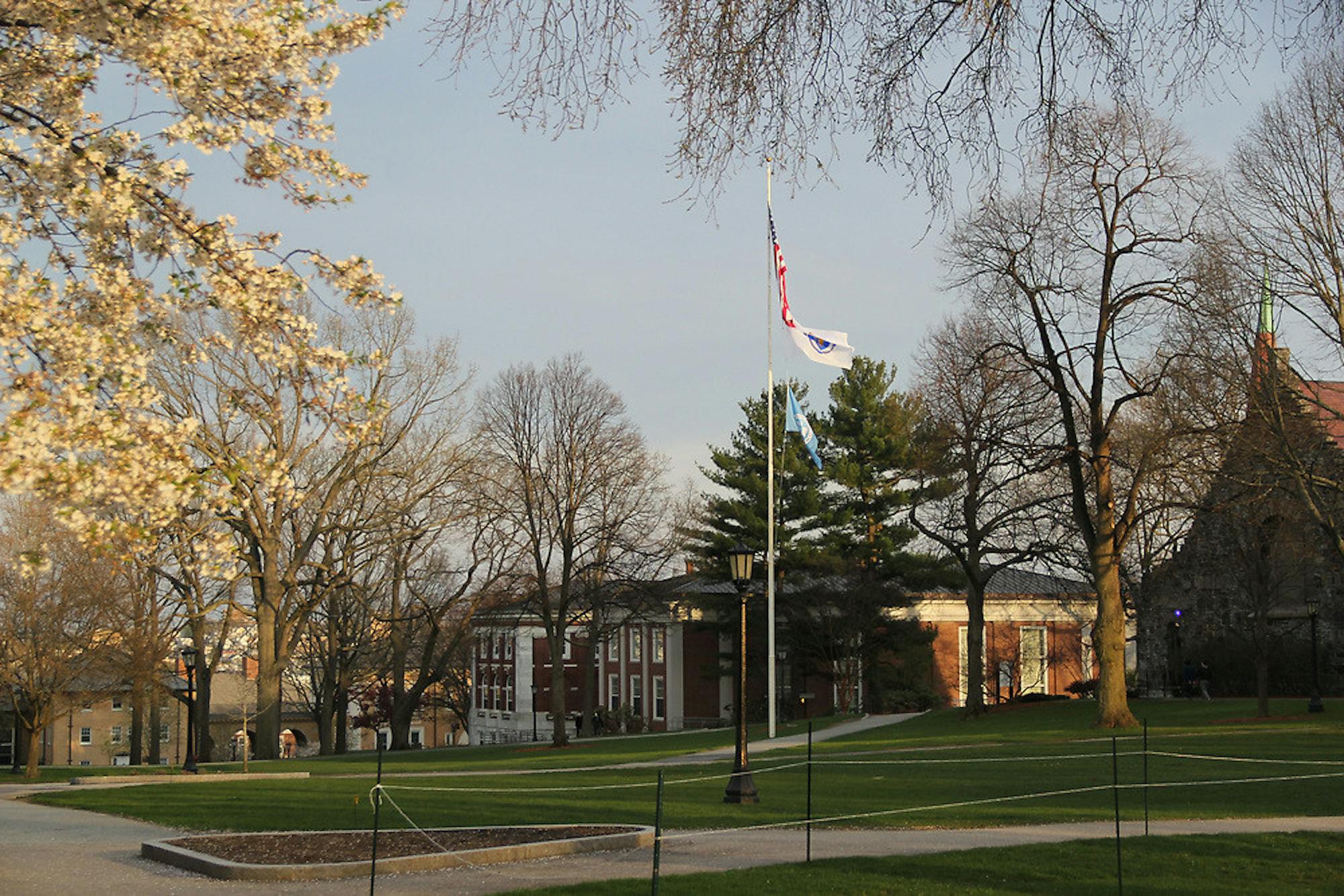The Talloires Network, a global coalition of universities focused on fostering civic engagement initiatives, awarded grants to five university-community partnerships responding to COVID-19.
Lorlene Hoyt, executive director of the Talloires Network and a research professor in the Department of Urban and Environmental Policy and Planning at Tufts,explained that the grants are part of the University Award for Innovative Civic Engagement and are funded by a grant from the Open Society Foundations Higher Education Support Program.
The fund particularly provides financial support to projects in the Global South that address the public health problems induced by the COVID-19 pandemic, according to Hoyt.
“[The university civic engagement movement] is more well-known in North America ..., Australia and . .. Europe, so we were really seeking to expand the movement [to the Global South], and ... elevate new ideas that aren’t familiar to the Global North,” Hoyt said.
The categories of projects the Talloires Network and the Open Society Foundations were looking to fund included those related to higher education, health and well-being, displaced people and climate justice, according to Hoyt.
She added that the COVID-19 pandemic hit soon after the two organizations called for project proposals, which led to most projects being submitted to the health and well-being category.
The Talloires Network also specifically looked at universities that had existing research or teaching partnerships with their local communities but also prioritized the promotion of gender equality, according to Hoyt.
The selection committee looked at both the programmatic elements that involve tackling gender inequality problems and the leadership role of women within the partner institutions themselves.
“Each of the winners have deliberately positioned women in key roles in the partnerships,” Hoyt said. “In countries like the ones awarded, [this degree of gender equity] is somewhat exceptional. It's not the common practice at all.”
One initiative receiving the grant money is Health Care for Internally Displaced Persons in Cameroon to Mitigate the Impacts of COVID-19, which is co-sponsored by Meridian Global University and the Access Care Foundation, according to the Talloires Network website.
Dr. Elvis Akomoneh, executive director of the Access Care Foundation, explained that the initiative provides health care-related services to internally displaced persons (IDPs) in the region.
Akomoneh indicated that the initiative grew from hundreds of thousands of Cameroonians being forced to flee their homes due to an armed conflict between the Cameroonian government and separatists.
According to Akomoneh, problems that IDPs are faced with have only been exacerbated by the pandemic.
"The recent outbreak of COVID-19 placed these IDPs who mostly live in overcrowded rooms with questionable sanitary conditions at a greater risk," he wrote in an email to the Daily.
Akomoneh said that with the support of the Talloires Network grant, the project is installing hand-washing stations, distributing free face masks and hand sanitizers and launching a household pandemic education campaign, among other programs.
The project also focuses on improving the livelihood of women and provides them with medicine to prevent malaria, HIV and other diseases, according to Akomoneh.
Another initiative receiving grant money from the Talloires Network isthe Co-creation Strategies for Improving the Health of Children and Access to Safe Water in a Time of Crisis, according to the Talloires Network website.
This project is led by Mount Kenya University (MKU) and Partners for Care, a local non-governmental organization that focuses on improving the quality of water in Kenya, according to itswebsite.
Dr. Peter Kirira, the director of the MKU Foundation, which is leading the project on behalf of MKU, wrote in an email to the Daily that MKU has previously worked with Partners for Care. He said that the organizations have distributed 50,000 water backpacks and treated 9,000 students for jiggers in the past.
Kirira explained that, in light of COVID-19, the Talloires Network’s grant will be used to provide sanitation resources in underserved areas, as well as additional water backpacks and jigger treatments.
Hoyt explained that a key event for Talloires Network member institutions is the Talloires Network Leaders Conference (TNLC), where members have the opportunity to meet and engage with other partners from around the globe.
“One of the things we find is that when people are doing this kind of work, it’s very difficult ... to take the time to stop and reflect on your practice in a rigorous way,” Hoyt said. “In [sharing their experiences with someone from another country], they often uncover their own assumptions and biases [and] learn more about themselves."
Akomoneh, who learned about the Talloires Network in 2014 and received a grant in 2015, fondly recalled his experience attending the TNLC conference in Mexico in 2017.
“My participation at the Talloires Network 2017 Leaders Conference in the Universidad Veracruzana, Xalapa, Mexico gave me the opportunity to meet with the very supportive team at the Network’s [secretariat] as well as learn from engagement activities of other member Universities,” Akomoneh said.
He added that he has enjoyed being a part of the Talloires Network.
“To say the least, my experience being a member of the network has been phenomenal and has helped guide our community engagement initiatives.”
The next TNLC is scheduled for 2021 and will be hosted by both Tufts University and Harvard University.






